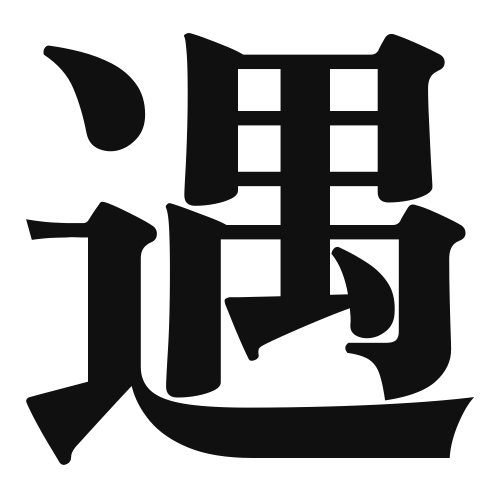1. Overview of Meaning
The kanji “遇” (pronounced “gu” or “yuu”) generally means “to encounter” or “to meet.” It conveys the idea of coming across someone or something, often by chance.
2. Formation and Radical
Formation of the Kanji: The kanji “遇” is a compound character (会意文字) that combines elements to convey its meaning. It consists of the radical for “to meet” (会) and the phonetic component “yu” (余), which helps indicate its pronunciation.
Radical: The radical of “遇” is 会 (kai), which relates to meeting or gathering.
3. Examples of Usage
Common Words and Phrases: Some frequently used words that include “遇” are:
- 遭遇 (そうぐう, souguu) – encounter
- 出会い (であい, deai) – meeting or encounter
Example Sentences in Daily Conversation:
- 彼と偶然に遇った。 (かれとぐうぜんにあった。) – I encountered him by chance.
- 新しい友達に遇うのが楽しみです。 (あたらしいともだちにあうのがたのしみです。) – I am looking forward to meeting new friends.
4. Synonyms and Antonyms
Similar Kanji: A similar kanji is “会” (kai), which also relates to meeting but emphasizes the gathering aspect rather than the chance encounter.
Opposite Kanji: An antonym could be “離” (ri), which means “to separate” or “to part,” indicating the opposite of meeting or encountering.
5. Cultural and Historical Background
Relation to Japanese Culture: The concept of “遇” is significant in Japanese culture, where encounters can be seen as fateful or meaningful. The idea of “deai” (meeting) is often celebrated in literature and art.
Proverbs and Idioms: One common saying is “出会いは運命” (deai wa unmei), meaning “encounters are fate,” highlighting the importance of meetings in life.
